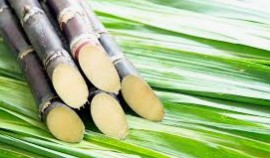Energy balance of ethanol production from sugarcane and aspects of current Brazilian production
DOI:
https://doi.org/10.20873/jbb.uft.cemaf.v7n3.anteroKeywords:
ethanol, biofuel, energetic balance, sugarcaneAbstract
Interest in alternative energy sources has increased in recent times, especially those considered essential for the mitigation of greenhouse gas emissions. In this regard, biofuel production has been prominent worldwide, with ethanol being one of the main energy alternatives for the future. However, similar to what happens with every energy resource, ethanol also demands energy for its production. Thus, the objective of this work was to analyze the energy balance of ethanol production from sugarcane, considering the energy-consuming activities. Also presented are the main characteristics related to ethanol production, the worldwide production cycle, the main producers, data on the current Brazilian sugarcane and ethanol productivity (2017/2018 crop), world ethanol production and the main destinations of Brazilian ethanol production. To this end, different articles and scientific papers published at the national and international level on the subject under discussion were consulted, through a study design carried out through qualitative and quantitative analysis of materials obtained in a literature review.
References
BNEF. Electric vehicles to be 35% of global new car sales by 2040. Disponível em: <https://about.bnef.com/blog/electric-vehicles-to-be-35-of-global-new-car-sales-by-2040/>.
CAMPOS, A.T.; CAMPOS, A.T. Balanços energéticos agro-pecuários: uma importante ferramenta como indicativo de sustentabilidade de agroecossistemas. Ciência Rural, v. 34, n. 6, p. 1977–1985, 2004.
CHECHETTO, R. G.; SIQUEIRA, R.; GAMERO, C.A. Balanço energético para a produção de biodiesel pela cultura da mamona (Ricinus communis L.). Revista Ciencia Agro-nomica, v. 41, n. 4, p. 546–553, 2010.
COELHO, S. T. et al. Brazilian sugarcane ethanol: lessons learned. Energy for Sustainable Development, v. 10, n. 2, p. 26–39, 2006.
CONAB. Acomapanhamento da safra brasileira de açúcar- Safra 2015/16. 2. ed. Brasília: Companhia Nacional de Abastecimento, 2015.
CONAB. Cana-de- açúcar: Acompanhamento da safra brasi-leira. Disponível em: <http://www.conab.gov.br/OlalaCMS/uploads/arquivos/17_08_24_08_59_54_boletim_cana_portugues_-_2o_lev_-_17-18.pdf>.
DEPEC. Acúcar e Etanol- Junho de 2017. Disponível em: <https://www.economiaemdia.com.br/EconomiaEmDia/pdf/infset_acucar_etanol.pdf>. Acesso em: 7 nov. 2017.
FIESP/ICONE. Outlook Brasil 2022- Projeções para o Agro-negócio. 1. ed. São Paulo: FIESP/ICONE, 2012.
GAZZONI, D. L. et al. Balanço energético da cultura da cano-la para a produção de biodiesel Canola energy balance for biodiesel production. Espaço Energia, v. 1, n. 11, p. 25–28, 2009.
GOLDEMBERG, J.; COELHO, S. T.; GUARDABASSI, P. The sustainability of ethanol production from sugarcane. Energy Policy, v. 36, n. 6, p. 2086–2097, 2008.
HANDLER, R. M. et al. Life Cycle Assessments of Ethanol Production via Gas Fermentation: Anticipated Greenhouse Gas Emissions for Cellulosic and Waste Gas Feedstocks. Industrial and Engineering Chemistry Research, v. 55, n. 12, p. 3253–3261, 2016.
LARSON, E. D. A review of life-cycle analysis studies on liquid biofuel systems for the transport sector. Energy for Sustainable Development, v. 10, n. 2, p. 109–126, 2006.
MACEDO, I. D. C.; LEAL, M. R. L. V.; SILVA, J. E. A. R. DA. Assessment of greenhouse gas emissions in the pro-duction and use of fuel ethanol in Brazil. São Paulo: [s.n.]. Disponível em: <http://www.wilsoncenter.org/sites/default/files/brazil.unicamp.macedo.greenhousegas.pdf>.
MACEDO, I. DE C. Sugar Cane’s energy: Twelve studies on Brazilian sugar cane. São Paulo: [s.n.].
MORAES, B. S.; ZAIAT, M.; BONOMI, A. Anaerobic digestion of vinasse from sugarcane ethanol production in Brazil: Challenges and perspectives. Renewable and Sus-tainable Energy Reviews, v. 44, p. 888–903, 2015.
NANDA, S. et al. An assessment on the sustainability of lignocellulosic biomass for biorefining. Renewable and Sus-tainable Energy Reviews, v. 50, p. 925–941, 2015.
OLIVEIRA, E.C. Balanço energético na produção de álcool da cana-de-açúcar: comparativo com a produção norte america-na de etanol por meio da utilização de milhoDouradosTraba-lho de conclusão de curso, Universidade Estadual de Mato Grosso do Sul. Dourados – MS, 2010, , 2010.
OLIVEIRA, L.M.; SERRA, J.C.V.; OLIVEIRA, K.B.M. Balanços energéticos da produção de etanol para diferentes matérias primas. Revista Eletrônica do Curso de Geografia - Geoambiente On-line, v. 1, n. 22, p. 39–52, 2014.
RFA. 2017 Ethanol Industry Outlook. United States: [s.n.]. Disponível em: <http://www.ethanolrfa.org/resources/publications/outlook/>.
RODRIGUES, D.; ORTIZ, L. Em direção à sustentabilidade da produção de etanol de cana de açúcar no Brasil. [s.l: s.n.]. Disponível em: <http://www.ecoa.org.br/arquivos/444052181.pdf%5Cnhttp://ndt.oxfordjournals.org/lookup/doi/10.1093/ndt/gfw346%5Cnhttp://www.scielo.br/pdf/jbpneu/v30n2/v30n2a15>.
SHAPOURI, H.; DUFFIELD, J. A.; WANG, M. The energy balance of corn ethanol: An updateUSDA- United States Departent of Agriculture. Washington: [s.n.].
SOARES, L. H. DE B.; ALVES, B. J. R.; URQUIAGA, S.; BODDEY, R. M. Mitigação das emissões de gases efeito estufa pelo uso de etanol da cana-de-açúcar produzido no Brasil. Circular técnica, p. 14, 2009.
UNIT STATION. Transforming our world: the 2030 Agenda for Sustainable Development. World Health, v. 16301, n. October, p. 1–15, 2015.
URQUIAGA, S.; ALVES, B. J. R.; BOODEY, R. M. Produ-ção de biocombustíveis A questão do balanço energético. Revista de Política Agrícola, v. 14, n. 1, p. 42–46, 2005.
URQUIAGA, S.; BOODEY, R. M. Produção de biocombus-tíveis A questão do balanço energético. p. 42–46, 2005.
WOODS, J.; BAUEN, A. Technology status review and carbon abatement potential of renewable transport fuels in the UK. UK: [s.n.]. Disponível em: <http://www.fcrn.org.uk/sites/default/files/DTI_Technology_status_review.pdf>.

Published
How to Cite
Issue
Section
License
Copyright (c) 2024 - Journal of Biotechnology and Biodiversity

This work is licensed under a Creative Commons Attribution 4.0 International License.
Authors who publish with this journal agree to the following terms:
Authors retain copyright and grant the journal right of first publication with the work simultaneously licensed under a Creative Commons Attribution License (CC BY 4.0 at http://creativecommons.org/licenses/by/4.0/) that allows others to share the work with an acknowledgement of the work's authorship and initial publication in this journal.
Authors are able to enter into separate, additional contractual arrangements for the non-exclusive distribution of the journal's published version of the work (e.g., post it to an institutional repository or publish it in a book), with an acknowledgement of its initial publication in this journal.
Authors are permitted and encouraged to post their work online (e.g. in institutional repositories or on their website) prior to and during the submission process, as it can lead to productive exchanges, as well as earlier and greater citation of published work (Available at The Effect of Open Access, at http://opcit.eprints.org/oacitation-biblio.html).


